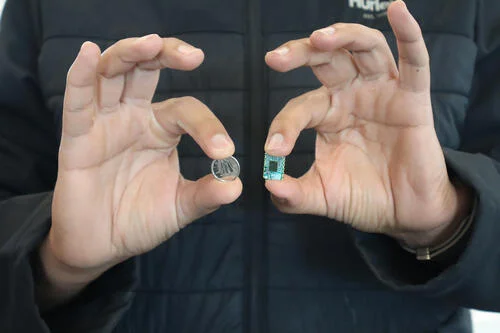Researchers at the University of Waterloo have adopted radar technology to monitor the health status of drivers, transforming ordinary vehicles into potential mobile medical facilities. This new tech was inspired by Star Trek's medical bay.

(Photo : University of Waterloo)
Leveraging Radar Tech to Monitor the Health of Drivers
Led by Dr. George Shaker, an adjunct professor in the Department of Electrical and Computer Engineering, the research team aims to leverage radar technology alongside advancing vehicle systems to facilitate health monitoring without the need for wearables.
The radar device, compact in size and comparable to a USB thumb drive, is seamlessly integrated into the vehicle cabin. It emits signals to detect human vibrations, which are then analyzed by an embedded AI system.
This system processes the data to construct a medical profile of the driver, identifying any potential health issues. Following the driver's journey, the system sends the compiled report directly to their mobile phone for review.
"This radar technology is not new. Our first demos using radars for in-cabin sensing were developed back in 2017 for infotainment touchless control and to alert people to children and pets left alone in parked vehicles. This application, using the technology to monitor vehicle occupants' health, is a step towards achieving our vision of cars as medical hubs of the future," Shaker said in a statement.
The primary focus of the research was to refine the technology to accurately identify changes in breathing patterns and heart rhythms indicative of cardiovascular and respiratory conditions.
Using AI to Interpret Medical Implications
Dr. Shaker and his team addressed the challenge by enhancing data extraction methods and training the AI system to interpret medical implications from the gathered data.
Moreover, privacy and security concerns were paramount, with data transmission occurring exclusively to the individual's cellphone without any storage on cloud servers.
The efficacy of the system was validated through rigorous testing, including the use of synthetic data mimicking respiratory conditions and examinations on individuals with preexisting heart conditions.
The results demonstrated the system's ability to accurately detect and identify various health issues, laying the groundwork for further development.
Looking ahead, the research team aims to broaden the capabilities of radar technology to encompass monitoring the health and well-being of all vehicle occupants.
This expansion includes diagnostic functionalities and the generation of comprehensive medical reports highlighting any detected issues, along with emergency communication features in the event of accidents.
The integration of radar technology for health monitoring purposes represents a notable advancement in the realm of vehicle-based medical assistance. However, ongoing research and refinement are essential to maximize its potential and ensure its practicality in real-world scenarios.
The research team's study, "Multibin Breathing Pattern Estimation by Radar Fusion for Enhanced Driver Monitoring," was recently published in IEEE Transactions on Instrumentation and Measurement.
Related Article: Tesla Launches Iteration of Tesla Visiono on Modely 3,Y But There's a Caveat---CEO Elon Musk Says it's Headed to Level 5 Autonomy










